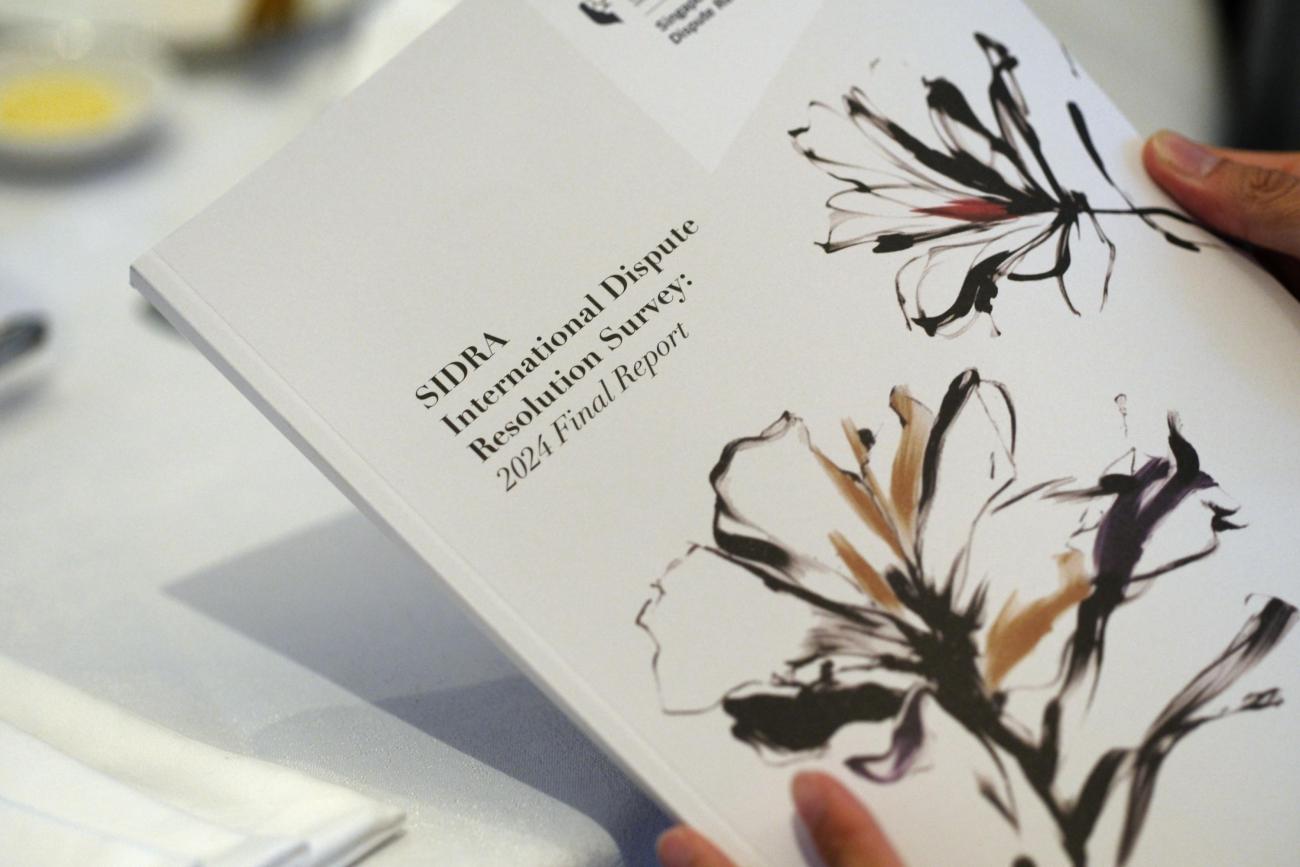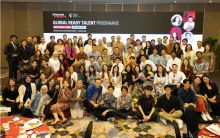
Shaping the future of global dispute resolution
The Singapore International Dispute Resolution Academy (SIDRA) at SMU’s Yong Pung How School of Law (YPHSL) has unveiled its highly anticipated 2024 Survey Report, offering groundbreaking insights into the evolving world of cross-border dispute resolution. Launched on 28 August 2024, the report reveals a clear shift in user preferences, with mediation emerging as the top choice for efficiency and cost-effectiveness. This year’s survey, expanded to cover intellectual property and technology disputes for the first time, highlights the growing demand for flexible, hybrid solutions as businesses navigate the complexities of global commerce."
The SIDRA Survey is a global study on how users of dispute-resolution mechanisms, including businesses and their legal representatives, make decisions about resolving cross-border disputes.
The 2024 Final Report was launched at a closed-door event which was graced by Guest-of-Honour Mr Murali Pillai SC, Minister of State, Ministry of Law and Ministry of Transport.
It presents some insightful findings on user satisfaction levels across various dispute resolution mechanisms, indicating a clear preference for mediation over arbitration and litigation.
The survey found that users of International Commercial Mediation experienced the highest level of satisfaction in costs (75 per cent) and speed (83 per cent).
In comparison, respondents were less satisfied with International Commercial Arbitration’s costs (30 per cent) and speed (42 per cent), as were users of International Commercial Litigation (45 per cent satisfied with costs, 36 per cent satisfied with speed).
This third iteration of the survey also examined the developments in investor-state dispute settlement, finding that a significant number of respondents considered the use of mediation and mixed mode (hybrid) procedures as a desirable development. This reflects a broader trend towards innovative, adaptable and flexible dispute-resolution methods.
The survey comprised five key questionnaires on international commercial arbitration, international commercial mediation, international commercial litigation, mixed mode (hybrid) dispute resolution and investor-state dispute settlement, respectively.
Throughout 2023, the survey was distributed internationally in all six official United Nations languages – Arabic, Chinese, English, French, Spanish and Russian – allowing it to reach a diverse selection of users. Respondents from 26 countries are featured, including a mix of in-house and external counsel who engage in cross-border commercial dispute resolution.
Justice Beverley McLachlin of the Singapore International Commercial Court wrote in the foreword for the SIDRA Survey 2024 Report: “Everywhere, arbitration and mediation are providing alternative ways of settling cross-border commercial disputes efficiently and effectively. Protocols that provide for enforcement of judgments and awards anywhere in the world now assure that justice will not only be done in tribunals, but on the ground.
“The 2024 SIDRA Survey will assist commercial actors and their advisors in negotiating the increasingly complex world of modern international dispute resolution, and, more broadly, contribute to the literature on the subject deepening our understanding of how to ensure justice in the world of international commerce,” she added.
Director of SIDRA Nadja Alexander, Lee Kong Chian Professor of Law at YPHSL, called the survey an invaluable and critical piece of evidence-based reporting. “The world of international dispute resolution is at a turning point; arbitration, mediation or litigation, international dispute resolution systems are evolving at an unprecedented rate and with increased complexity.”
“We are honoured to lead this study – the deep and diverse insights gathered will undoubtedly make a meaningful impact in fostering positive change in the field of international dispute resolution.”
Professor Alexander also explained that the survey is unique in its approach, design and respondent profile, being 100 per cent user-centric and experience-based.
“It also focused on dispute-resolution mechanisms for cross-border disputes only – as opposed to domestic ones. No single dispute resolution mechanism is examined in isolation – this is critical given the enhanced interconnectedness of dispute resolution developments, as illustrated by the emergence of hybrid dispute resolution mechanisms and international court referrals to other dispute resolution mechanisms.”


